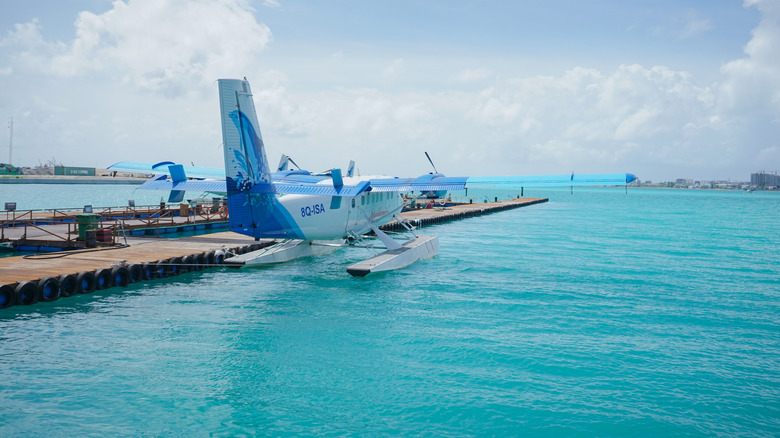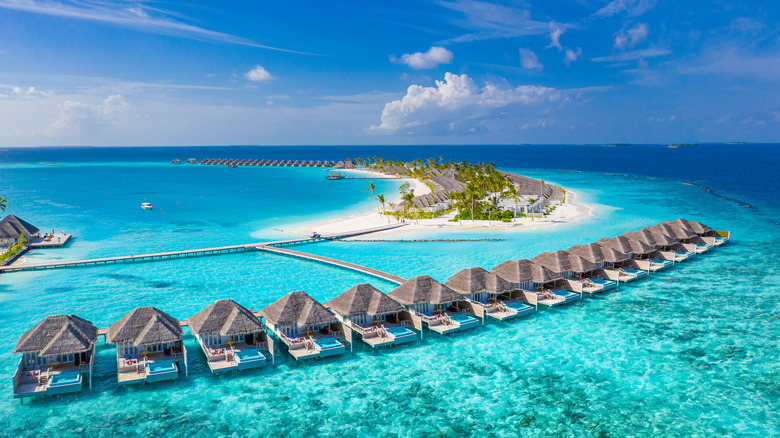Maldives Plans To Build A Floating City That Can House 20K People
Imagine you are watching the opening scene of a sci-fi movie. The camera shows a partially open ring surrounding what looks like giant coral brain that's undulating slightly in the turquoise water. As the camera zooms in, you see boats motoring around and inside the ring, and people moving around on foot, bicycles, and electric carts. What you are looking at is the plan for a floating city that will support 20,000 people, according to a press release from Maldives Floating City.
The Islamic Republic of Maldives consists of a chain of about 1,200 small coral islands in the north central Indian Ocean, about 400 miles off the coast of Sri Lanka, according to Britannica. The capital city, Male, is considered one of the most densely-populated cities in the world. Construction for the floating city is already underway and is expected to be completed by 2024; this will be the second floating city in the world. The first one, called Oceanix, is under construction off the coast of Busan, the second largest city in South Korea, per the New York Post.
Floating cities built for addressing climate change
You may have seen photos of over-water bungalow tropical resorts in Maldives and other places like Fiji, Bora Bora, and Tahiti. To that end, it's not surprising that Dutch Docklands Maldives and Dutchman Koen Olthuis' architectural firm, Waterstudio, are teaming up as part of a public-private partnership with Maldives, according to the New York Post. The purpose is to address the impact of climate change on rising ocean levels. The Netherlands is no stranger to the battle between land and ocean as almost a third of the country is actually below sea level, reports Netherlands Tourism.
The Indian Ocean is already experiencing a rise in sea level quicker than the average anywhere else in the world, according to Down to Earth. The floating cities in Maldives, and Oceanix in South Korea, are being designed to withstand category 5 hurricanes. Rather than destroying existing coral reefs to reclaim buildable land, giant coral reefs will be grown to act as water breakers, as well as to anchor the floating buildings. The floating cities are expected to combine residential, commercial, and government facilities such as hospitals and schools. It remains to be see whether or not if the floating city trend will catch on around the world.

